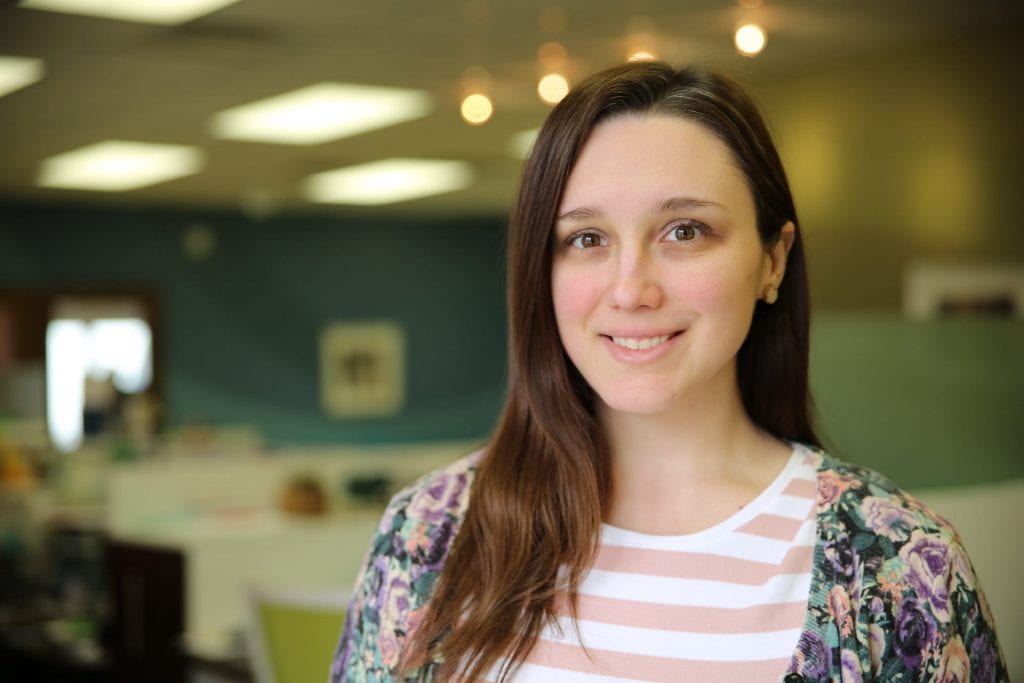“It’s OK to be smart, and it’s actually really cool,” Jeanne Norris says.
The curriculum coordinator with the Institute for School Partnership at Washington University is sitting at a table typing away on her laptop adorned with a sticker that says, “Be The Nerd.”
“I consider myself a standards wonk,” she says. “Nothing makes me happier than discussing next generation science standards, and looking at the evidence statements and thinking about how we are going to meet them. It really makes me happy.”
So, how nerdy is she? “Oh, hardcore,” she says with a laugh.
Norris was recently selected to join the inaugural EQuIP Peer Review Panel for Science. The goal of the panel is to identify high-quality lessons and units that are designed for the Next Generation Science Standards (NGSS). Initially, 600 applicants expressed interest. That was then narrowed down to more than 150 applicants, and finally 39 educators were selected to join the panel.
Norris attended a kick-off meeting November 15-16 in Orlando, Fla. She left the gathering energized and hopeful for the future of science education.
“All of us on this panel are interested in finding and creating excellent NGSS lessons,” she says. The best part about our kickoff meeting was that it truly modeled the spirit of NGSS — we were encouraged to discuss, ask questions, and build knowledge and skills collectively, rather than being given all of the ‘right’ answers. I look forward to continuing to work with panel members to identify lessons that encourage students to ‘figure out’ rather than ‘learn about’ science.”
Before coming to ISP, Norris taught for five years at Gateway STEM High School in the St. Louis Public School District. Her first interaction with ISP was through the Master of Science in Biology program for educators. ISP assistant director Rachel Ruggirello was her instructor. Norris initially came on board as a consultant. Eventually a permanent position opened up.
“I have a passion for education and for helping people love science,” she says. However, that wasn’t always the case. In middle school she describes liking science “zero percent.”
In fact, she did like science but she just didn’t realize it. Growing up she loved catching butterflies, bugs and being outside but she didn’t make the connection that that was science because nobody framed it like that for her. Finally, in high school it clicked.
“I had excellent science teachers and they were almost all women and I feel like that was really important,” she says. “I left high school wanting to teach anatomy and AP biology and I was lucky enough to be able to do that.”
Despite not being in the classroom anymore, Norris says she still gets that feeling that she’s helping kids.
“Seeing a teacher’s face…it literally looks like Christmas when I’m telling her about some of the changes we made to the units. And knowing that she’s going to take that passion and she’s going to help all of these little people in elementary school love science, that really means a lot to me.”
December 2016 | by, Myra Lopez
